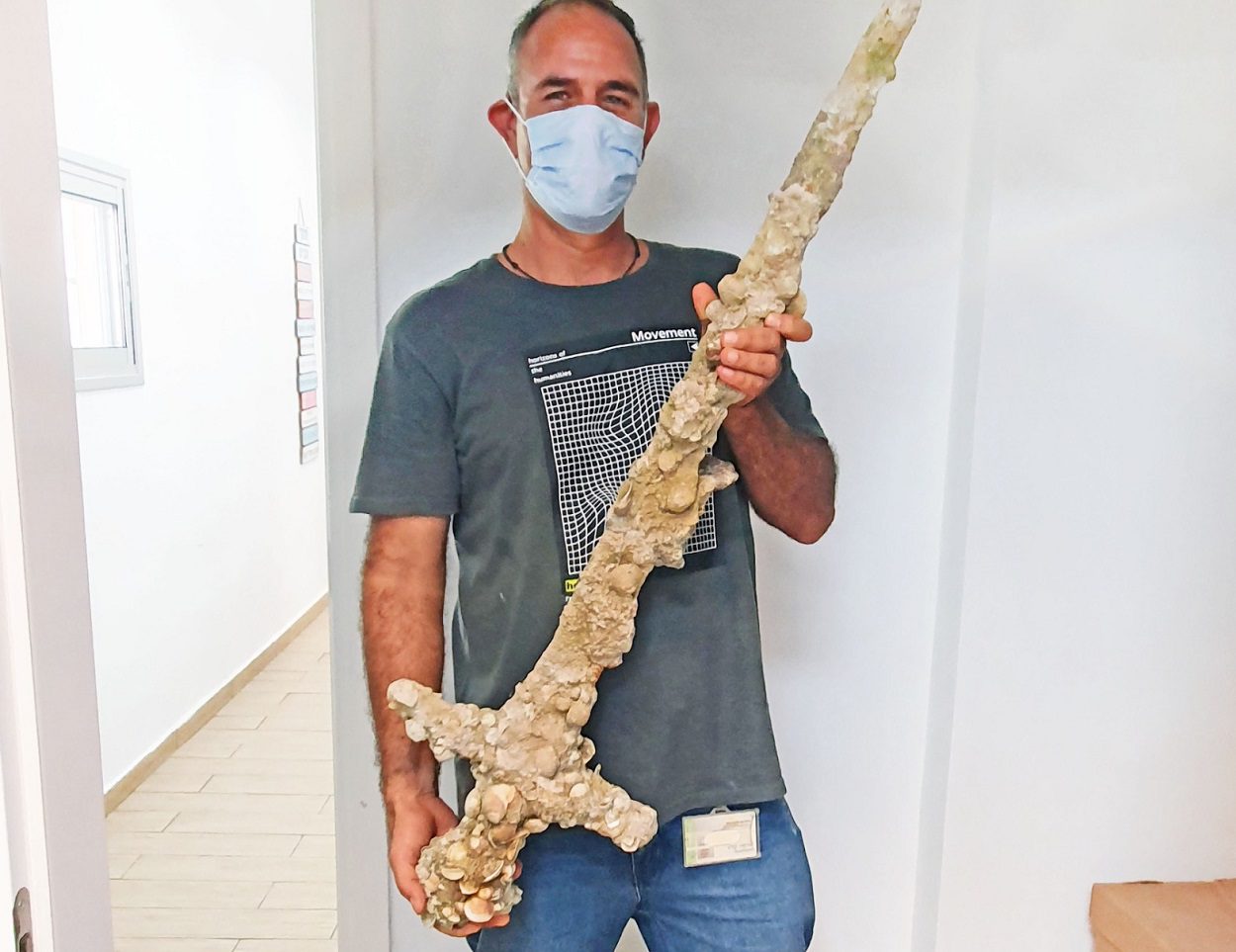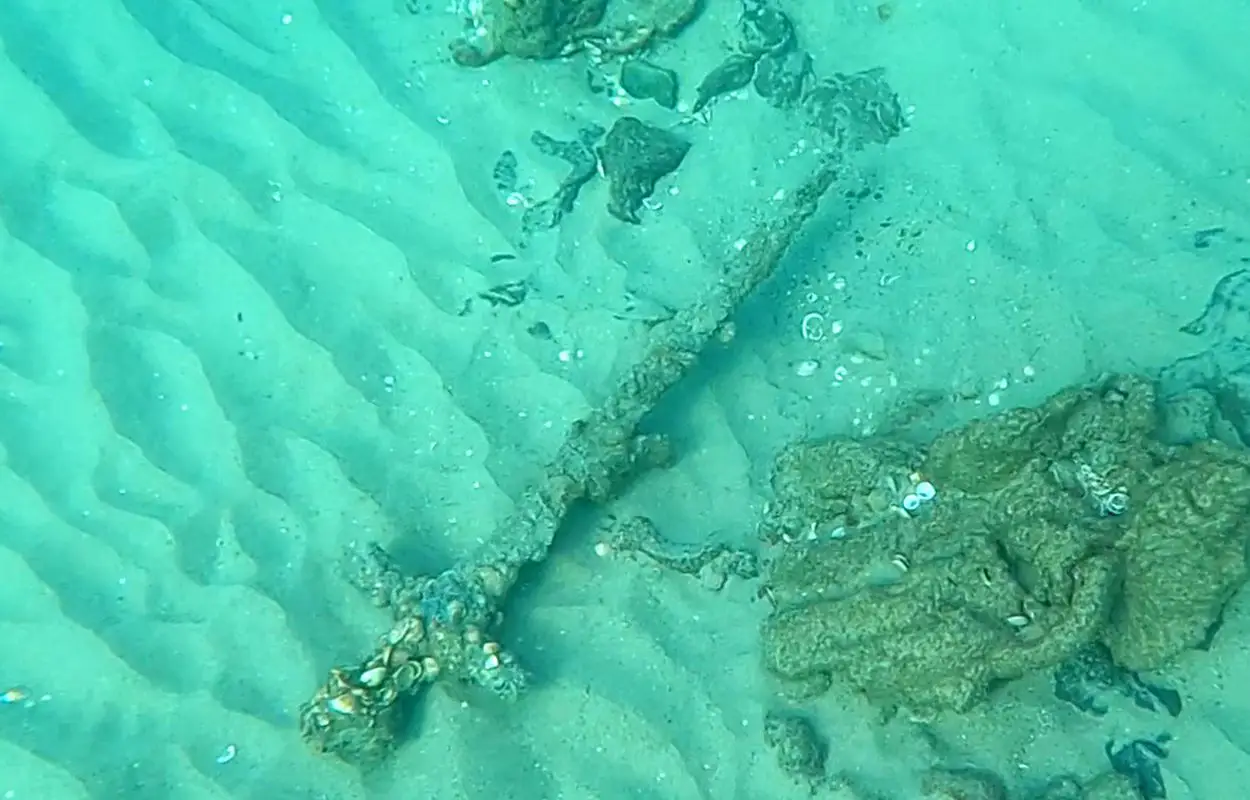Medieval sword found off Israel’s Hof HaCarmel coast was likely lost during a naval battle 800-years-ago during the Crusader period.
The sword was discovered in 2021 by Shlomi Katzin while conducting a study of stone and metal anchors on the seabed. The area was a natural anchorage for ships near Haifa’s ancient port city that the Crusaders captured from the Arabs during the early 12th century AD.
In a new study published by the Israel Antiquities Authority (IAA), the researchers describe how the sword was found covered in a thick marine concretion of sand and shells, making it difficult to separate the metal without causing damage. However, the concretion slowed down the oxidation process, preserving the sword which would have rusted and disintegrated in the water.
By conducting a detailed X-ray study to penetrate the layers of concretions, the team have revealed that the sword had a blade approximately 88 cm’s in length by 4.6 cm’s in width, and appears to have been bent possibly during combat.

“The sword was part of a knight’s or soldier’s personal equipment. It was the main weapon in face-to-face combat in those days,” says Dr. Joppe Gosker. “Swords required a lot of quality iron and were therefore expensive. In addition, sword fighting required training and practice, and therefore, only the nobility and professional soldiers fought with swords.”
According to the researchers, the sword likely fell into the sea during a naval battle along with its owner. The sword could have been on one of the ships that laid siege to the coastal cities, or perhaps it belonged to a knight who was on a ship returning home to Europe.
A survey of the area where it was found has so far resulted in no further artefacts or evidence of human remains, however, according to Gosker: “The soldier may still lie undiscovered in the depths, to be revealed one day by the shifting sands.”
Eli Escusido, Director of the Israel Antiquities Authority, said: All along the coast of Israel, there are many finds buried beneath the sand and in the sea, and they are often lost forever, or sometimes discovered by chance. It is important that qualified archaeologists record the finds and their contexts.”
Header Image Credit : Shlomi Katzin





